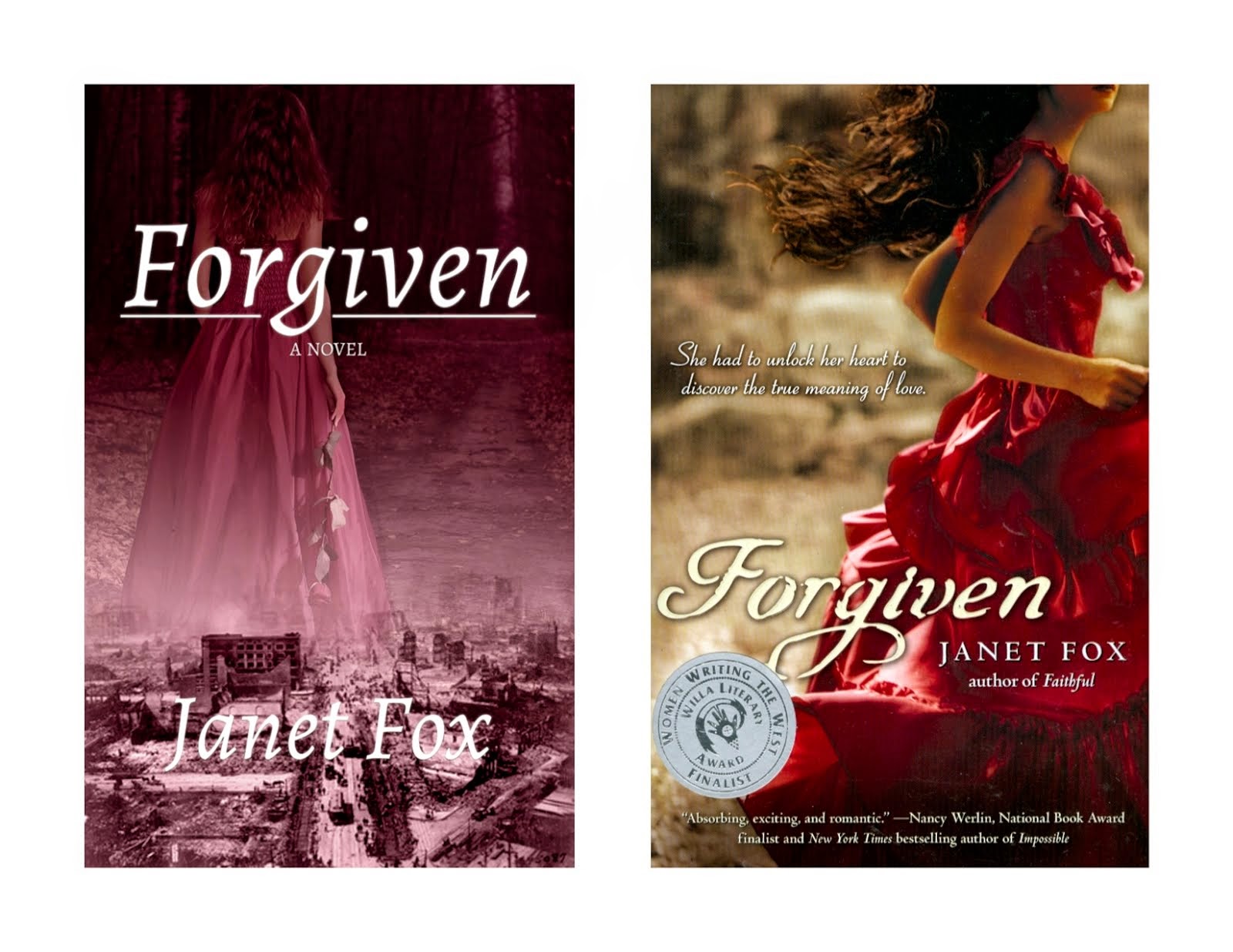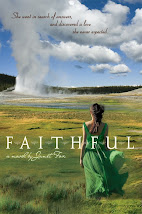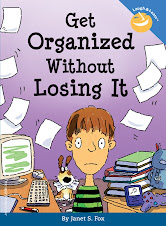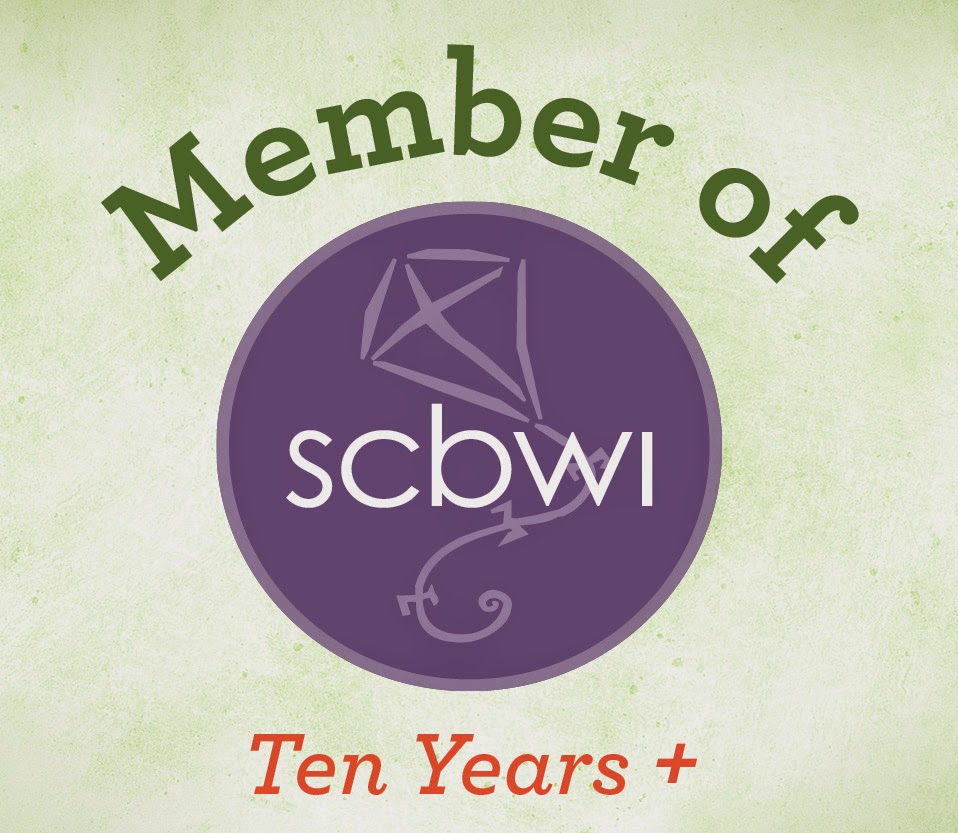I want to finish this story, but before I do, here's a good link to know about if you are published and considering school visits: http://www.tinanicholscouryblog.com/ Alexis O'Neill is an accomplished writer who really knows how to handle school visits. There are good tips there!
But back to January 2007 - just so you don't think that writing is easy for me - once Alyssa signed me, it still took 6 months of back and forth edits before she felt that my manuscript was ready to send to editors. Alyssa is very hands-on (which I love) and gave me terrific advice. And, by the way, you're never too old to be told to "show, don't tell". Her best words of wisdom: make sure it's always kid-friendly.
There were times when I felt that this manuscript would never be finished, that I'd be old and gray before I got it right. I tightened and ditched and rewrote. But it was when I changed the point of view - from 3rd to 1st - that it happened. The character popped out, the story drove forward, it worked.
This is not for every manuscript, but if something isn't working, try changing POV, if only for an experiment.
Tuesday, April 29, 2008
Friday, April 25, 2008
How does it happen? - Part 2
So there I was, in San Antonio, at an SCBWI (www.scbwi.org) conference, trying to concentrate on the various lectures and workshops, and all the time wondering whether Alyssa would like Faithful.
I walked into the room in a state of anxiety, only to have Alyssa seem so excited to see me - her first words were (to this effect), "I love this book!"
You could have knocked me over with a feather. I spent the rest of my ten minute critique in a fog. She asked to see the entire manuscript when she took her new job as agent about 6 weeks later. Of course, the second I walked out of the room I knew I was in for a lot of work - the manuscript was far, far from finished.
But I sweated to get it whipped into shape for her. And about a week before it was "due" (which is what I like to think about my window of opportunity), I was only halfway there.
I called my writer friends - Kathy Whitehead and Shirley Hoskins, and Kathi Appelt and Debbie Leland - and the advice I got was: "send what you have. Just send what you have. Don't wait, or that window might close." So I sent half a novel.
And Alyssa loved it, and was happy to wait until January for the rest, and she signed me as a client in January of 2007.
But the story doesn't quite end there...
I walked into the room in a state of anxiety, only to have Alyssa seem so excited to see me - her first words were (to this effect), "I love this book!"
You could have knocked me over with a feather. I spent the rest of my ten minute critique in a fog. She asked to see the entire manuscript when she took her new job as agent about 6 weeks later. Of course, the second I walked out of the room I knew I was in for a lot of work - the manuscript was far, far from finished.
But I sweated to get it whipped into shape for her. And about a week before it was "due" (which is what I like to think about my window of opportunity), I was only halfway there.
I called my writer friends - Kathy Whitehead and Shirley Hoskins, and Kathi Appelt and Debbie Leland - and the advice I got was: "send what you have. Just send what you have. Don't wait, or that window might close." So I sent half a novel.
And Alyssa loved it, and was happy to wait until January for the rest, and she signed me as a client in January of 2007.
But the story doesn't quite end there...
Friday, April 11, 2008
How does it happen?
Since it's been awhile, and since people have been asking, I'm going to review how I became a real published author.
My first book, "Get Organized Without Losing It", was the result of having a son with dyslexia and ADD. He's a great kid, but he sure couldn't keep his stuff together in elementary school. So, although I was trying to write picture books, one morning I woke up and said, "I need to write a book for Kevin."
When I looked around, I couldn't find anything on the market that addressed the issues of organization for a younger child, elementary to middle school age. I had done tons of my own research to try and help him, so I put together a book proposal and sent it to the publisher most likely to publish it, and (many months later), they bought "Get Organized". This sale was a combination of passion, timing, luck, and research. I knew the subject and I targeted the market.
But I was also writing fiction, all types of fiction. I have picture book manuscripts and novels cluttering my files. But there was one manuscript I couldn't quit working on: "Faithful".
"Faithful" is set in Yellowstone Park, an area I know well. Partly I wrote it because I find the landscape so astonishing. Partly I wrote it because my mother died. Those two elements collided in this story.
I hadn't really sent the manuscript around because I was still working on it, when, in fall 2006, I had an email about an SCBWI () conference in San Antonio. It was a last minute decision to attend. They had offered critiques, but these were all sold out.
Then, a week before the conference, I had another email: a crit slot had opened up, and was I still interested? I had to respond with 10 first pages by 6PM.
So I sent the first ten pages of "Faithful". Now, I was in the middle of another major edit; I didn't even proof the ten pages.
My critique landed with Alyssa Eisner Henkin, then an editor for Simon and Schuster. When she announced at the conference that she was leaving S&S to become an agent, I was as nervous as a cat. I really didn't expect anything to happen in my critique.
But it did - and that's the magic of luck, combined with persistence.
I'll finish this story next time.
My first book, "Get Organized Without Losing It", was the result of having a son with dyslexia and ADD. He's a great kid, but he sure couldn't keep his stuff together in elementary school. So, although I was trying to write picture books, one morning I woke up and said, "I need to write a book for Kevin."
When I looked around, I couldn't find anything on the market that addressed the issues of organization for a younger child, elementary to middle school age. I had done tons of my own research to try and help him, so I put together a book proposal and sent it to the publisher most likely to publish it, and (many months later), they bought "Get Organized". This sale was a combination of passion, timing, luck, and research. I knew the subject and I targeted the market.
But I was also writing fiction, all types of fiction. I have picture book manuscripts and novels cluttering my files. But there was one manuscript I couldn't quit working on: "Faithful".
"Faithful" is set in Yellowstone Park, an area I know well. Partly I wrote it because I find the landscape so astonishing. Partly I wrote it because my mother died. Those two elements collided in this story.
I hadn't really sent the manuscript around because I was still working on it, when, in fall 2006, I had an email about an SCBWI () conference in San Antonio. It was a last minute decision to attend. They had offered critiques, but these were all sold out.
Then, a week before the conference, I had another email: a crit slot had opened up, and was I still interested? I had to respond with 10 first pages by 6PM.
So I sent the first ten pages of "Faithful". Now, I was in the middle of another major edit; I didn't even proof the ten pages.
My critique landed with Alyssa Eisner Henkin, then an editor for Simon and Schuster. When she announced at the conference that she was leaving S&S to become an agent, I was as nervous as a cat. I really didn't expect anything to happen in my critique.
But it did - and that's the magic of luck, combined with persistence.
I'll finish this story next time.
Wednesday, April 9, 2008
Character Framework
Here's what readers want in their characters:
1. someone they like
2. someone with courage
3. someone they understand
4. someone who makes things happen
5. someone tenacious
6. someone passionate.
In other words, readers like to see characters who are an idealization of their own dreams. You know that moment when you walk away from a bad conversation and rethink it with great comebacks and snappy lines? Readers love to see their characters find those great comebacks and snappy lines.
But not all the time! A great character has to fail, too, and fail miserably. A great character (protagonist) needs a great obstacle (antagonist) to fight. In fact, that obstacle has to be huge - life and death.
Now, to a 10-year old, life and death may be her parents' divorce. Or it may be experiencing supreme embarrassment. A comic life and death moment is a twist on the serious - showing up at a non-costume party wearing a costume.
When we writers create characters, we have to think about them within the framework of the obstacle they face. And give them a desire so important that it motivates them to act.
So, it's character to desire to goal, all blocked by the big obstacle.
How do I, personally, tackle this?
Well, usually my stories start with an abstract idea. In other words, my plot comes first. But almost at the same time I envision the character who will deal with this idea. Often I free write a number of scenes, getting the emotional tenor and voice of the story rolling in my head before I write the story itself.
But before I write much of the story I try to get to know the character, by one or more of the techniques I've already described. This is just the "getting-to-know-you" phase of writing. It usually isn't until I've written most of a complete first draft that I feel I really know my character.
Then I'll go back and do another round of character studies! I might re-web, or interview my character, or make another scrapbook, or write a series of pages of character backstory.
This is a very organic way of working, and that's what works for me at least through the third draft. By that time, if my character isn't fully developed, the story probably isn't working, either.
And, by the way, I probably end up with between 15 and 20 drafts (or more) of a single novel/story. But more about that stage in another post.
1. someone they like
2. someone with courage
3. someone they understand
4. someone who makes things happen
5. someone tenacious
6. someone passionate.
In other words, readers like to see characters who are an idealization of their own dreams. You know that moment when you walk away from a bad conversation and rethink it with great comebacks and snappy lines? Readers love to see their characters find those great comebacks and snappy lines.
But not all the time! A great character has to fail, too, and fail miserably. A great character (protagonist) needs a great obstacle (antagonist) to fight. In fact, that obstacle has to be huge - life and death.
Now, to a 10-year old, life and death may be her parents' divorce. Or it may be experiencing supreme embarrassment. A comic life and death moment is a twist on the serious - showing up at a non-costume party wearing a costume.
When we writers create characters, we have to think about them within the framework of the obstacle they face. And give them a desire so important that it motivates them to act.
So, it's character to desire to goal, all blocked by the big obstacle.
How do I, personally, tackle this?
Well, usually my stories start with an abstract idea. In other words, my plot comes first. But almost at the same time I envision the character who will deal with this idea. Often I free write a number of scenes, getting the emotional tenor and voice of the story rolling in my head before I write the story itself.
But before I write much of the story I try to get to know the character, by one or more of the techniques I've already described. This is just the "getting-to-know-you" phase of writing. It usually isn't until I've written most of a complete first draft that I feel I really know my character.
Then I'll go back and do another round of character studies! I might re-web, or interview my character, or make another scrapbook, or write a series of pages of character backstory.
This is a very organic way of working, and that's what works for me at least through the third draft. By that time, if my character isn't fully developed, the story probably isn't working, either.
And, by the way, I probably end up with between 15 and 20 drafts (or more) of a single novel/story. But more about that stage in another post.
Friday, April 4, 2008
Character building
Another exercise in creating great characters...the old webbing technique is useful. Create a web diagram that shows all the influences on your character, using categories and sub-categories.
For example, a major category may be family, and a subcategory would be grandparents; then describe who they are/were and give them hooks, handles, and descriptors. Think about your character's pets - not only the ones he or she has now, but the ones that have died or run away (always a traumatic experience for a child). Think about school experiences - they are formative. Friends and enemies, teachers, mentors, anyone who's impacted your character needs a small profile, too, especially if they are featured in your story.
A further technique is the interview. Pretend you are talking directly to your character: ask him/her a series of questions as if you were conducting a detailed interview. Follow the thread of the answers you get - you might be surprised. This is especially effective if you feel like you want to add something unexpected to your story. We all have secrets - what's your character's secret? When you find it, don't even include it in the book - it provides a richness to your character without ever being mentioned.
What's his favorite subject in school? What does she hate most in the world? What's his phobia (yes, we all have them - mine are high places and deep water).
In my next post I'll define a character framework.
For example, a major category may be family, and a subcategory would be grandparents; then describe who they are/were and give them hooks, handles, and descriptors. Think about your character's pets - not only the ones he or she has now, but the ones that have died or run away (always a traumatic experience for a child). Think about school experiences - they are formative. Friends and enemies, teachers, mentors, anyone who's impacted your character needs a small profile, too, especially if they are featured in your story.
A further technique is the interview. Pretend you are talking directly to your character: ask him/her a series of questions as if you were conducting a detailed interview. Follow the thread of the answers you get - you might be surprised. This is especially effective if you feel like you want to add something unexpected to your story. We all have secrets - what's your character's secret? When you find it, don't even include it in the book - it provides a richness to your character without ever being mentioned.
What's his favorite subject in school? What does she hate most in the world? What's his phobia (yes, we all have them - mine are high places and deep water).
In my next post I'll define a character framework.
Subscribe to:
Posts (Atom)










